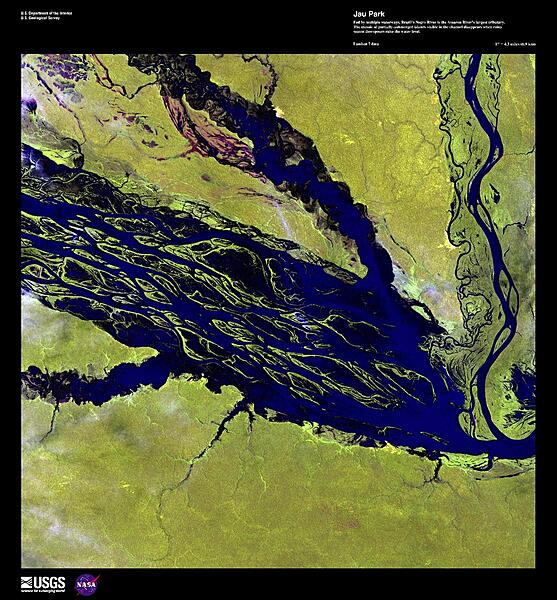
conventional long form: Federative Republic of Brazil
conventional short form: Brazil
local long form: República Federativa do Brasil
local short form: Brasil
etymology: the country name derives from the brazilwood tree that used to grow plentifully along the coast of Brazil and that was used to produce a deep red dye
federal presidential republic
name: Brasília
geographic coordinates: 15 47 S, 47 55 W
time difference: UTC-3 (2 hours ahead of Washington, DC, during Standard Time)
time zone note: Brazil has four time zones, including one for the Fernando de Noronha Islands
etymology: name bestowed on the new capital of Brazil upon its inauguration in 1960; previous Brazilian capitals had been Salvador from 1549 to 1763 and Rio de Janeiro from 1763 to 1960
26 states (estados, singular - estado) and 1 federal district* (distrito federal); Acre, Alagoas, Amapa, Amazonas, Bahia, Ceara, Distrito Federal*, Espirito Santo, Goias, Maranhao, Mato Grosso, Mato Grosso do Sul, Minas Gerais, Para, Paraiba, Parana, Pernambuco, Piaui, Rio de Janeiro, Rio Grande do Norte, Rio Grande do Sul, Rondonia, Roraima, Santa Catarina, Sao Paulo, Sergipe, Tocantins
7 September 1822 (from Portugal)
Independence Day, 7 September (1822)
history: several previous; latest ratified 5 October 1988
amendments: proposed by at least one third of either house of the National Congress, by the president of the republic, or by simple majority vote by more than half of the state legislative assemblies; passage requires at least three-fifths majority vote by both houses in each of two readings; constitutional provisions affecting the federal form of government, separation of powers, suffrage, or individual rights and guarantees cannot be amended; amended many times, last in 2023
civil law; note - a new civil law code was enacted in 2002 replacing the 1916 code
has not submitted an ICJ jurisdiction declaration; accepts ICCt jurisdiction
citizenship by birth: yes
citizenship by descent only: yes
dual citizenship recognized: yes
residency requirement for naturalization: 4 years
voluntary between 16 to 18 years of age, over 70, and if illiterate; compulsory between 18 to 70 years of age; note - military conscripts by law cannot vote
chief of state: President Luiz Inácio LULA da Silva (since 1 January 2023); Vice President Geraldo José Rodrigues ALCKMIN Filho (since 1 January 2023); note - the president is both chief of state and head of government
head of government: President Luiz Inácio LULA da Silva (since 1 January 2023); Vice President Geraldo José Rodrigues ALCKMIN Filho (since 1 January 2023)
cabinet: Cabinet appointed by the president
elections/appointments: president and vice president directly elected on the same ballot by absolute majority popular vote in 2 rounds if needed for a 4-year term (eligible for a single consecutive term and additional terms after at least one term has elapsed); election last held on 2 October 2022 with runoff on 30 October 2022 (next to be held on 4 October 2026)
election results:
2022: Luiz Inácio LULA da Silva elected president in second round; percent of vote in first round - Luiz Inácio LULA da Silva (PT) 48.4%, Jair BOLSONARO (PSL) 43.2%, Simone Nassar TEBET (MDB) 4.2%, Ciro GOMES (PDT) 3%, other 1.2%; percent of vote in second round - Luiz Inácio LULA da Silva (PT) 50.9%, Jair BOLSONARO (PSL) 49.1%
2018: Jair BOLSONARO elected president in second round; percent of vote in first round - Jair BOLSONARO (PSL) 46%, Fernando HADDAD (PT) 29.3%, Ciro GOMEZ (PDT) 12.5%, Geraldo ALCKMIN (PSDB) 4.8%, other 7.4%; percent of vote in second round - Jair BOLSONARO (PSL) 55.1%, Fernando HADDAD (PT) 44.9%
description: bicameral National Congress or Congresso Nacional consists of:
Federal Senate or Senado Federal (81 seats; 3 members each from 26 states and 3 from the federal district directly elected in multi-seat constituencies by simple majority vote to serve 8-year terms, with one-third and two-thirds of the membership elected alternately every 4 years)
Chamber of Deputies or Camara dos Deputados (513 seats; members directly elected in multi-seat constituencies by open party-list proportional representation vote to serve 4-year terms)
elections:
Federal Senate - last held on 2 October 2022 for one-third of the Senate (next to be held on 4 October 2026 for two-thirds of the seats)
Chamber of Deputies - last held on 2 October 2022 (next to be held on 4 October 2026)
election results:
Federal Senate - percent of vote by party - NA; seats by party - PL 13, Brazil Union 12, MBD 10, PSD 10, PT 9, Progressistas 7, Podemos 6, PSDB 4, Republicans 3, PDT 2, Cidadania 1, PSB 1, PSC 1, PROS 1, REDE 1; composition - men 66, women 15, percent of women 18.5%
Chamber of Deputies - percent of vote by party - NA; seats by party - PL 99, PT 67, Brazil Union 59, PP 47, MDB 42, PSD 42, Republicans 41, PDT 17, PSB 14, PSDB 13, Podemos 12, PSOL 12, Avante 7, PCdoB 6, PSC 6, PV 6, Cidadania 5, Patriota 4, PROS 4, SD 4, NOVO 3, REDE 2, PTB 1; composition - men 423, women 90, percent of women 17.5%; note - total National Congress percent of women 17.7%
highest court(s): Supreme Federal Court or Supremo Tribunal Federal (consists of 11 justices)
judge selection and term of office: justices appointed by the president and approved by the Federal Senate; justices appointed to serve until mandatory retirement at age 75
subordinate courts: Tribunal of the Union, Federal Appeals Court, Superior Court of Justice, Superior Electoral Court, regional federal courts; state court system
Act (Agir) [Daniel TOURINHO] (formerly Christian Labor Party or PTC)
Avante [Luis Henrique de Oliveira RESENDE] (formerly Labor Party of Brazil or PTdoB)
Brazil Union (União Brasil); note - founded from a merger between the Democrats (DEM) and the Social Liberal Party (PSL)
Brazilian Communist Party or PCB [Astrogildo PEREIRA]
Brazilian Democratic Movement or MDB [Luiz Felipe Baleia TENUTO Rossi]
Brazilian Labor Party or PTB [Kassyo Santos RAMOS]
Brazilian Renewal Labor Party or PRTB [Júlio Cezar FIDELIX da Cruz]
Brazilian Labor Party or PTB
Brazilian Social Democracy Party or PSDB [Bruno Cavalcanti de ARAÚJO]
Brazilian Socialist Party or PSB [Carlos Roberto SIQUEIRA de Barros]
Christian Democracy or DC [José Maria EYMAEL] (formerly Christian Social
Cidadania [Roberto João Pereira FREIRE] (formerly Popular Socialist Party or PPS)
Communist Party of Brazil or PCdoB [Luciana SANTOS]
Democratic Labor Party or PDT [Ciro FERREIRA Gomes]
Democratic Party or PSDC
Democrats or DEM [Jose AGRIPINO] (formerly Liberal Front Party or PFL); note - dissolved in February 2022
Green Party or PV [José Luiz PENNA]
Liberal Party or PL [Valdemar Costa Neto] (formerly Party of the Republic or PR)
National Mobilization Party or PMN [Antonio Carlos Bosco MASSAROLLO]
New Party or NOVO [Eduardo RIBEIRO]
Patriota [Ovasco RESENDE] (formerly National Ecologic Party or PEN)
Podemos [Renata ABREU] (formerly National Labor Party or PTN)
Progressive Party (Progressistas) or PP [Ciro NOGUEIRA Lima Filho]
Republican Social Order Party or PROS [Euripedes JUNIOR]
Republicans (Republicanos) [Marcos Antônio PEREIRA] (formerly Brazilian Republican Party or PRB)
Social Christian Party or PSC [Everaldo Dias PEREIRA]
Social Democratic Party or PSD [Alfredo COATIT Neto]
Social Liberal Party or PSL [Luciano Caldas BIVAR]
Socialism and Freedom Party or PSOL [Juliano MEDEIROS]
Solidarity or SD [Paulinho DA FORÇA]
Sustainability Network or REDE [Marina SILVA]
United Socialist Workers' Party or PSTU [José Maria DE ALMEIDA]
Workers' Cause Party or PCO [Rui Costa PIMENTA]
Workers' Party or PT [Gleisi Helena HOFFMANN]
AfDB (nonregional member), BIS, BRICS, CAN (associate), CD, CELAC, CPLP, FAO, FATF, G-15, G-20, G-24, G-5, G-77, IADB, IAEA, IBRD, ICAO, ICC (national committees), ICCt, ICRM, IDA, IFAD, IFC, IFRCS, IHO, ILO, IMF, IMO, IMSO, Interpol, IOC, IOM, IPU, ISO, ITSO, ITU, ITUC (NGOs), LAES, LAIA, LAS (observer), Mercosur, MIGA, MINURSO, MINUSTAH, MONUSCO, NAM (observer), NSG, OAS, OECD (enhanced engagement), OPANAL, OPCW, Paris Club (associate), PCA, PROSUR, SICA (observer), UN, UNASUR, UNCTAD, UNESCO, UNFICYP, UNHCR, UNHRC, UNIDO, UNISFA, UNIFIL, Union Latina, UNISFA, UNITAR, UNMIL, UNMISS, UNOCI, UNOOSA, UNRWA, UNWTO, UPU, WCO, WFTU (NGOs), WHO, WIPO, WMO, WTO
chief of mission: Ambassador Maria Luiza Ribeiro VIOTTI (since 30 June 2023)
chancery: 3006 Massachusetts Avenue NW, Washington, DC 20008
telephone: [1] (202) 238-2700
FAX: [1] (202) 238-2827
email address and website:
ambassador.dc@itamaraty.gov.br
https://www.gov.br/mre/pt-br/embaixada-washington
consulate(s) general: Atlanta, Boston, Chicago, Hartford (CT), Houston, Los Angeles, Miami, New York, San Francisco, Washington, DC
chief of mission: Ambassador Elizabeth Frawley BAGLEY (since 5 February 2023)
embassy: SES - Avenida das Nações, Quadra 801, Lote 3, 70403-900 - Brasília, DF
mailing address: 7500 Brasilia Place, Washington DC 20521-7500
telephone: [55] (61) 3312-7000
FAX: [55] (61) 3225-9136
email address and website:
BrasilliaACS@state.gov
https://br.usembassy.gov/
consulate(s) general: Recife, Porto Alegre, Rio de Janeiro, São Paulo
branch office(s): Belo Horizonte
green with a large yellow diamond in the center bearing a blue celestial globe with 27 white five-pointed stars; the globe has a white equatorial band with the motto ORDEM E PROGRESSO (Order and Progress); the current flag was inspired by the banner of the former Empire of Brazil (1822-1889); on the imperial flag, the green represented the House of Braganza of Pedro I, the first Emperor of Brazil, while the yellow stood for the Habsburg Family of his wife; on the modern flag the green represents the forests of the country and the yellow rhombus its mineral wealth (the diamond shape roughly mirrors that of the country); the blue circle and stars, which replaced the coat of arms of the original flag, depict the sky over Rio de Janeiro on the morning of 15 November 1889 - the day the Republic of Brazil was declared; the number of stars has changed with the creation of new states and has risen from an original 21 to the current 27 (one for each state and the Federal District)
note: one of several flags where a prominent component of the design reflects the shape of the country; other such flags are those of Bosnia and Herzegovina, Eritrea, and Vanuatu
Southern Cross constellation; national colors: green, yellow, blue
name: "Hino Nacional Brasileiro" (Brazilian National Anthem)
lyrics/music: Joaquim Osorio Duque ESTRADA/Francisco Manoel DA SILVA
note: music adopted 1890, lyrics adopted 1922; the anthem's music, composed in 1822, was used unofficially for many years before it was adopted
total World Heritage Sites: 23 (15 cultural, 7 natural, 1 mixed)
selected World Heritage Site locales: Brasilia (c); Historic Salvador de Bahia (c); Historic Ouro Preto (c); Historic Olinda (c);  (n); Jesuit Missions of the Guaranis (c); Rio de Janeiro: Carioca Landscapes (c);
(n); Jesuit Missions of the Guaranis (c); Rio de Janeiro: Carioca Landscapes (c);  (n); Atlantic Forest South-East Reserves (n); Paraty and Ilha Grande – Culture and Biodiversity (m)
(n); Atlantic Forest South-East Reserves (n); Paraty and Ilha Grande – Culture and Biodiversity (m)
NOTE: The information regarding Brazil on this page is re-published from the 2024 World Fact Book of the United States Central Intelligence Agency and other sources. No claims are made regarding the accuracy of Brazil 2024 information contained here. All suggestions for corrections of any errors about Brazil 2024 should be addressed to the CIA or the source cited on each page.
This page was last modified 04 May 24, Copyright © 2024 ITA all rights reserved.